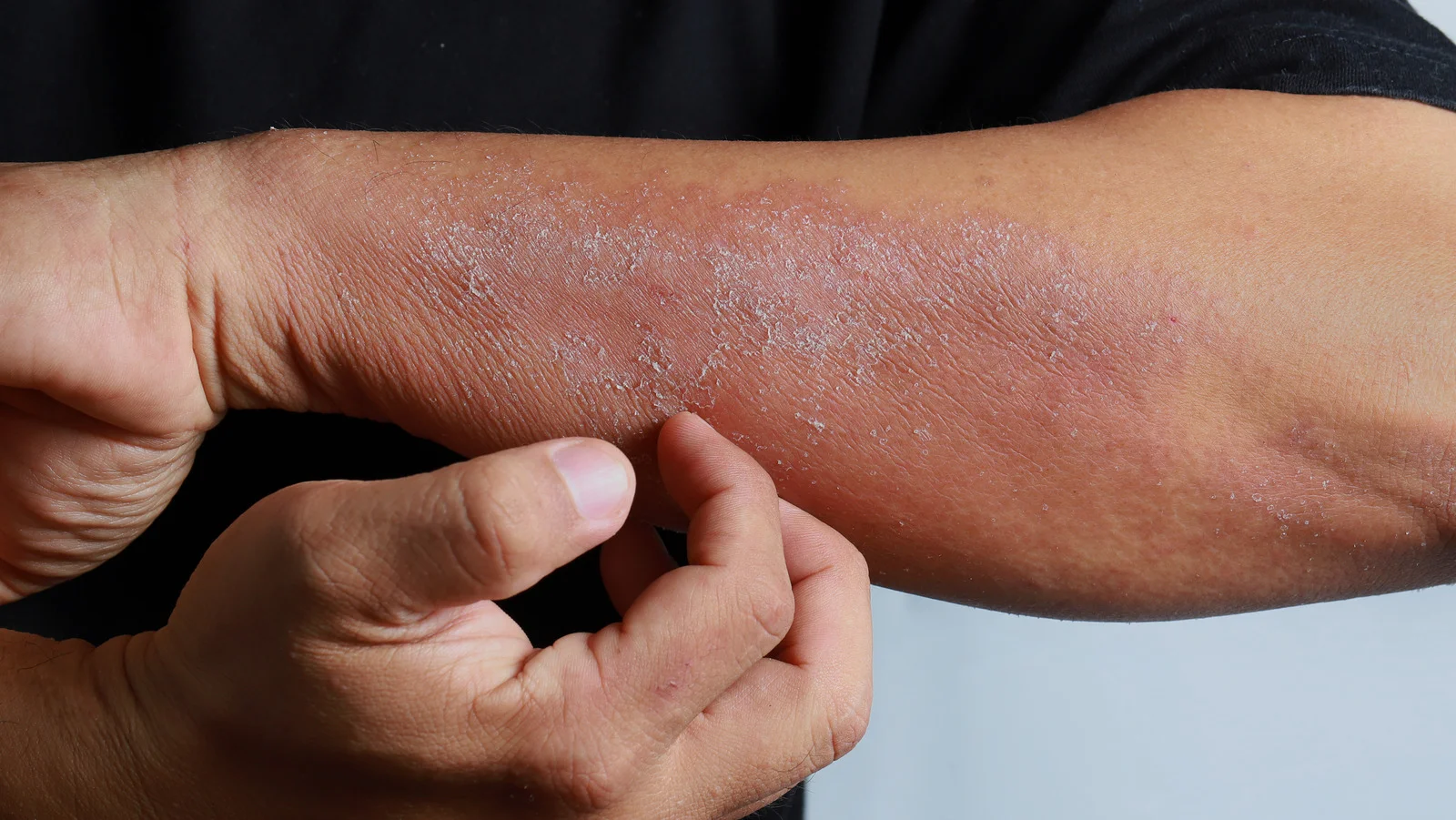As any skin health expert like Skin specialist in Lahore would tell you, psoriasis treatment has a considerable impact on the mental and physical health of the patient. Psoriasis involves the hyperproliferation of the keratinocytes or the keratin producing cells of the skin, causing an increased turnover of the epidermal layers. The exact cause, however, of this increased turnover of the keratinocytes is not understood yet. Read on to know more about psoriasis and its treatment considerations:
Treatment options for psoriasis:
In simple terms, the treatment of psoriasis is centered around sun exposure daily, topical moisturizer, relaxation and sun bathing. However, a more tailored approach is recommended only after examination of the lesions by a healthcare provider depending upon the severity.
Topical corticosteroids:
Topical corticosteroids are most frequently prescribed for mild to moderate psoriasis. During flare-ups, corticosteroids can be applied to the lesions, such as on the face, skin folds and the widespread patches. Once the lesion is in remission, application of steroid is switched to alternate days or weekends. Long term use of corticosteroids is detrimental for the skin.
Retinoids:
Retinoids are applied once or twice a day. They are not recommended for pregnant patients.
Vitamin D analogues:
Vitamin D analogues such as their synthetic analogues—calcipotriene and calcitriol can slow down the growth of skin. The vitamin D analogues are rarely used alone, preferred more commonly with topical steroid therapy. For sensitive areas, calcitriol is less irritating.
Coal tar:
Coal tar reduces scaling, inflammation and itching. Many preparations of coal tar are available—such as shampoo, oil and cream. Even though they are messy to use, they are quite effective. For pregnant and lactating mothers, coal tar is not recommended.
Salicylic acid:
Salicylic acid enhances the ability of other drugs to penetrate the skin and therefore, are used in combination with other drugs. They are used primarily on scalp psoriasis.
Anthralin:
Anthralin is another tar product that can slow down the growth of skin cells. The scales are easier to remove with anthralin and the skin becomes smoother. However, anthralin can cause mild irritation.
Light therapy:
Light therapy is recommended for moderate to severe psoriasis. Often, it is used with other drugs for better response. Controlled amounts of artificial and natural light are used for treatment, but repeat sessions are necessary for success.
Methotrexate:
Methotrexate is given orally or injected for more severe form of psoriasis. The most common form of administration is weekly single oral dose.
Click Here to Read More About Trending HealthCare Technology
Cyclosporine:
Cyclosporine is another oral drug for severe psoriasis to suppress the immune system. It is similar in action to methotrexate.
Treatment algorithm for psoriasis :
Psoriasis is classified as systemic, topical or phototherapeutic. In mild psoriasis, the treatment regimen is limited to topical therapy alone. However, patients are not compliant in topical therapy alone, especially in the long run, which makes treatment less effective.
For localized lesions: treatment is started with topical corticosteroids, with the possible addition of calcipotriene and/or coal tar. If the lesion responds to this then the corticosteroids are tapered off. If not, anthralin or tazarotene is added.
For psoriasis plaques that are resistant to treatment, intralesional injections of corticosteroid are administered, along with triamcinolone. The dose of the latter can be increased gradually until response is seen. The potential side effects of triamcinolone include pain at the injection site, and local atrophy.
Patient education
As soon as a patient is diagnosed with psoriasis, their skincare expert or Skin specialist in Karachi should guide them about their disease. Their education of disease should include information about the non-contagious nature of skin lesions along with need of long-term therapy and the possible effect of disease on their quality of life. Patient should also be educated about the exacerbating factors such as medication—ACE inhibitors, lithium and beta blockers, stress, infection and trauma.
How to Get Rid of Psoriasis

Psoriasis is a persistent autoimmune circumstance that impacts millions of humans worldwide, causing pain, embarrassment, and now and again extreme bodily and emotional misery. While there may be no therapy for psoriasis, there are numerous strategies and remedies to be had to control its signs and symptoms successfully and improve nice of lifestyles.
Types of Psoriasis
Psoriasis gives in numerous unique forms, every with its own distinct characteristics. The most commonplace kinds consist of plaque psoriasis, gut Tate psoriasis, inverse psoriasis, pustule psoriasis, and erythrodermic psoriasis.
Symptoms and Signs
The signs of psoriasis vary depending on the type and severity of the situation but regularly include purple patches of pores and skin blanketed with thick, silvery scales, itching, burning, and discomfort. Psoriasis also can have an effect on the nails, inflicting them to grow to be thickened, pitted, or ridged.
Medical Treatments for Psoriasis

Medical remedies for psoriasis intention to reduce irritation, sluggish down pores and skin cellular boom, and alleviate signs. These may additionally include:
Topical Treatments
Topical corticosteroids, retinoids, and calcineurin inhibitors are generally prescribed to lessen infection and relieve itching and pain.
Oral Medications
Oral medications along with methotrexate, cyclosporine, and acitretin may be prescribed for more intense instances of psoriasis that don’t reply to topical remedies.
Biologics
Biologic tablets goal unique parts of the immune gadget worried inside the development of psoriasis, efficaciously reducing irritation and signs and symptoms.
Light Therapy
Phototherapy includes exposing the pores and skin to ultraviolet mild beneath scientific supervision, which can help sluggish down pores and skin cellular turnover and decrease inflammation.
Natural Remedies and Lifestyle Changes
In addition to medical remedies, certain way of life changes and natural treatments may additionally assist manage psoriasis symptoms and improve normal pores and skin fitness.

Diet and Nutrition
Maintaining a balanced eating regimen wealthy in fruits, veggies, complete grains, and lean proteins can help aid usual fitness and can lessen inflammation related to psoriasis.
Stress Management
Stress is a known cause for psoriasis flare-ups, so training strain-discount strategies inclusive of meditation, yoga, and deep respiration sporting activities may also help manipulate symptoms.
Sun Exposure
Moderate publicity to herbal daylight can assist enhance psoriasis signs and symptoms for some people, even though it’s crucial to avoid overexposure and sunburn.
Moisturizers and Skincare
Regularly moisturizing the skin with gentle, fragrance-loose merchandise can assist alleviate dryness, itching, and irritation related to psoriasis.
Home Remedies for Psoriasis
In addition to scientific treatments and way of life modifications, numerous home remedies can also offer relief from psoriasis symptoms.
Aloe Vera
Aloe Vera gel, derived from the leaves of the aloe Vera plant, has soothing and anti-inflammatory properties which could help reduce redness and inflammation associated with psoriasis.
Apple Cider Vinegar
Apple cider vinegar can also help relieve itching and infection whilst applied topically or added to bathwater. It’s vital to dilute apple cider vinegar earlier than use to avoid skin irritation.
Dead Sea Salts
Soaking in a bathtub with Dead Sea salts may help lessen inflammation, itching, and scaling related to psoriasis, way to the minerals determined inside the salts.
Tea Tree Oil
Tea tree oil has herbal antibacterial and anti-inflammatory houses, making it a famous desire for treating psoriasis plaques and soothing irritated pores and skin.
Preventing Psoriasis Flare-ups
While psoriasis cannot be cured, certain techniques can assist save you or limit flare-ups.
Avoiding Triggers
Identifying and avoiding triggers inclusive of pressure, infections, and positive medicines can assist reduce the frequency and severity of psoriasis flare-ups?
Proper Skincare Routines
Establishing a everyday skincare recurring, together with mild cleansing and moisturizing, can help keep psoriasis signs below control.
Regular Medical Check-ups
Regular visits to a dermatologist or healthcare provider are important for tracking psoriasis signs and symptoms, adjusting treatment plans as wished, and addressing any concerns or complications.
The Importance of Psychological Well-being

Living with psoriasis can take a toll on a person’s mental and emotional health, so it’s important to prioritize psychological properly-being.
Coping with the Emotional Impact
Managing stress, anxiety, and depression associated with psoriasis may require expert assist, which include therapy or counseling.
Support Groups and Therapy
Joining a guide group or in search of person therapy can provide valuable emotional aid, encouragement, and realistic hints for handling psoriasis.
Managing Psoriasis in Daily Life
Living with psoriasis may additionally require making adjustments in numerous elements of day by day lifestyles.
Clothing Choices
Choosing free-becoming, breathable clothing made from soft fabric can help save you irritation and discomfort related to psoriasis plaques.
Work and Social Life Adjustments
Open verbal exchange with employers, colleagues, and buddies about psoriasis can help lessen stigma and make sure necessary resorts are made.
Travel Tips
Planning in advance for journey, consisting of packing necessary medications and skin care merchandise, can help minimize stress and make certain a cushy experience.
Psoriasis and Comorbidities
Psoriasis is associated with a multiplied threat of growing other fitness situations, emphasizing the importance of holistic health management.
Association with Other Health Conditions
Psoriasis has been related to several comorbidities, along with cardiovascular sickness, diabetes, weight problems, and melancholy.
Importance of Holistic Health Management
Managing psoriasis correctly involves addressing now not most effective skin signs however also other health troubles and danger elements to improve usual nicely-being.
Research and Innovations in Psoriasis Treatment
Ongoing studies and improvements in psoriasis remedy provide wish for improved consequences and best of existence for people living with the situation.
Current Trends in Medical Research
Researchers are exploring new therapeutic targets and treatment approaches, which includes novel biologics, small molecules, and gene treatment options.
Promising Therapies at the Horizon
Emerging remedies which includes interleukin inhibitors, Janus kinase (JAK) inhibitors, and phosphodiesterase-4 (PDE4) inhibitors show promise in medical trials for their efficacy and safety profiles.
Case Studies and Success Stories
Real-existence experiences of individuals dwelling with psoriasis can provide valuable insights and notion for others facing similar demanding situations.
Real-Life Experiences of Psoriasis Management
Sharing non-public testimonies of psoriasis diagnosis, remedy trips, and achievements can foster a experience of network and guide amongst the ones living with the condition.
Lessons Learned and Insights Gained
Reflecting at the challenges and triumphs of living with psoriasis can assist people increase coping techniques, resilience, and a fantastic outlook for the future.
Seeking Professional Help
While self-care and home remedies can offer comfort for a few psoriasis symptoms, it is critical to are seeking expert clinical advice for correct diagnosis and remedy.
Importance of Consulting Healthcare Providers
Dermatologists and different healthcare vendors focusing on psoriasis can provide personalized treatment plans tailor-made to person wishes, preferences, and medical records.
Finding the Right Dermatologist
Choosing a dermatologist who’s informed, skilled, and compassionate could make a good sized difference in handling psoriasis successfully and improving fine of lifestyles.
Myths and Misconceptions about Psoriasis
Despite being a not unusual situation, psoriasis is often misunderstood, leading to myths and misconceptions.
Addressing Common Misunderstandings
Dispelling myths approximately psoriasis, such because it being contagious or completely a pores and skin circumstance, can assist lessen stigma and sell cognizance and expertise.
Dispelling Misinformation
Providing correct information approximately psoriasis reasons, signs and symptoms, and remedy alternatives can empower people to make knowledgeable selections approximately their fitness and well-being.
Supporting Loved Ones with Psoriasis
Family members, pals, and caregivers play a critical function in imparting support and encouragement to people living with psoriasis.
Family and Friends’ Role in Providing Support
Offering empathy, expertise, and sensible help can help ease the emotional burden of residing with psoriasis and improve normal exceptional of existence.
Educating Others about Psoriasis
Raising recognition about psoriasis in the network and dispelling misconceptions can assist create a greater supportive and inclusive surroundings for individuals suffering from the situation?
Related Content
Blue cheese pregnancy: Can Pregnant Women Eat Blue Cheese
Unleashing the Power of Custom Workout Routines
Problem of Smog: Breathing in danger, Impact on Health
Salajeet in Pakistan: Uses and Benefits for Men & Women
Energy Booster (Dry Fruits Mixture): Boost your memory and Brain Power

